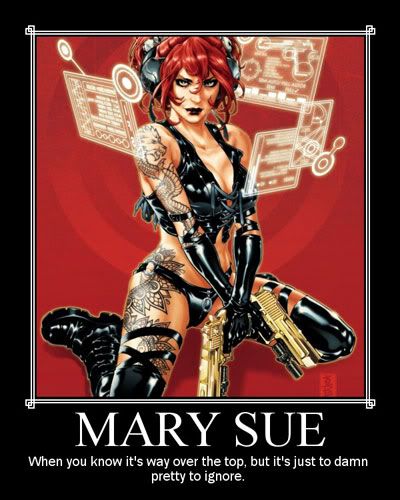
Phillip Pullman has published an article expressing his dislike of stories in the present tense. He makes some good points about some of the limitations of present tense, which I feel extend to some of the limitations of first person perspective. But that’s a subject for another post. What came to mind even as I read the article was that this is coming from a man who called the Chronicles of Narnia “religious propaganda.”
I can’t express my difficulty with this any better than Confused Matthew did, so I’m going to quote his mini-rant on the subject from his review of The Golden Compass:
The Narnia books do not mention any of the following things: God, prayer, Jesus, religion, the bible, the pope, the church, atheism, Satan, mass, the eucharist or anything directly having to do with to any actual faith. Yes, many of stories are directly inspired by Bible stories, but this is perfectly understandable. Lewis had become interested in Christianity at the time he wrote the series — he was recently converted in fact, if I’m not mistaken — and as a writer, you write what you know. THAT’S NOT WHAT PROPAGANDA IS. […]
PULLMAN, on the other hand, has no problem whatsoever putting things in his books like: “For all of [the Church’s] history… it’s tried to suppress and control every natural impulse. And when it can’t control them, it cuts them out” — “That’s what the Church does, and every church is the same: control, destroy, obliterate every good feeling” — “The Christian religion is a very powerful and convincing mistake.” Now please, please, do not take this to mean that I am either defending or denouncing these lines in the book. […] My only point is this: Phillip Pullman, you are a hypocrite. You don’t accuse someone of writing propaganda, especially when they haven’t, and then turn around and write your own propaganda in response.
This is a very particular and irksome example of one of the biggest problems I have with some authors out there, and one I take pains to avoid when I can — the problem of author insertion.
In Pullman’s case, the themes and story elements of His Dark Materials are rooted in this denouncement of the church, every church, as an evil, soul-crushing monolithic organization that exists to serve itself first and foremost. While there are some churches out there that fall into this category, there are also political parties, so-called ‘news’ organizations, businesses, social groups and gaming companies that are just as guilty of existing solely for their own sake rather than working or seeking harmony with the community at large. When these things are brought to light in a work of non-fiction, an expose or a historical account, it’s fascinating stuff that lays foundations for thoughtful debate, or at least an entertaining argument. When inserted into fiction, it’s propaganda.
Now, as Matthew pointed out, we write what we know. Some of us don’t like certain political, religious, philosophical or sociological points of view, and like it or not it’s going to come out in your work. That’s okay. I’m not talking about that. I’m talking about making a deliberate and concerted effort to push certain views through the mouths of your characters to the expense of moving the story along or allowing those characters to grow in their own ways. I’m talking sacrificing interesting character-building conversational dialog for overt preaching to the reader. I’m talking about making sure your characters don’t turn into Brian the dog from Family Guy.

Remember when Brian was just the intelligent, sarcastic foil to Peter’s oafish blundering? Those were the days…
These are casing of taking “You write what you know” to the extreme. But some authors go further than that. Some go so far as to write not just what they know, but who they are. And since this is fiction we’re talking about, you can be certain they’re writing who they want to be.
You know where I’m going with this, right? As if the image I slapped up top wasn’t a big giveaway. I’m going to quickly touch on three particularly egregious examples of author insertion, starting with what I feel is the least and working my way up to what really pisses me off.
A lot has been said about the style and substance of Dan Brown. But one thing that sticks out for some is the mere presence of protagonist Robert Langdon. Smart, reasonably attractive, athletic, able to succeed regardless of odds with only a minimum of personal investiture, risk and negative consequences — I can’t think of an art or history major who wouldn’t mind being in the situations he’s thrust into with that sort of setup and their vast acumen of knowledge. And more often than not, coupled with a love interest who is head over heels for them at first sight. Now, to be fair, Langdon’s perfection is somewhat downplayed in the films and the first novel, Angels & Demons. But from what I understand, it’s pretty common for Brown to cast his heroes in this same mold.
From a character standpoint, Bella Swan is also smart, reasonably attractive, athletic and able to succeed regardless of odds with only a minimum of personal investiture, risk and negative consequences. She’s also existing in a series of stories inspired by a dream experienced by author Stephenie Meyer. Now, in this dream world, being stalked by a killer is the basis of a life-long desirable relationship. Killers sparkle in the sunlight. The heroine onto whom many of the young readers project themselves is pursuing (and pursued by) a character who has all of the personality of an empty can of Coke and all the trappings of an abusive boyfriend or husband. A lot has already been said about the unforunate implications of this series, like this excellent essay by Cleolinda Jones.
As disturbingly close to the author as Bella might be, though, let me bring to your attention one of the biggest examples of this phenomenon: Rhonin, a character from Warcraft created by Richard A. Knaak. Nowhere else in that universe is there a character who is not only an archmage but also a skilled swordsman and handy with a crossbow to boot. Friend to gods, admired and respected by villains, married to a hot elf chick and father to half-elf twins who are, according to Knaak, the only two in existence despite the fact other half-elves have been in the game since Burning Crusade — the list goes on. And when Knaak can’t come up with adequate explanations as to why this character is so singular, powerful, well-respected and devastatingly handsome, he creates other characters to prop that character up who are just as inexplicably perfect as Rhonin.
I hope I’m making my point. This is bad writing. These are bad characters. They’ve come to life as a result of an author putting too much of themselves into their work. If you want your work to succeed, in my humble opinion, you need to make some effort to keep yourself out of it.



September 22, 2010 at 12:39 pm
There’s also the extreme of literally WRITING YOURSELF INTO YOUR FICTIONAL BOOK. This was the main reason I never finished the last Dark Tower book. I don’t really care what reason you have for doing this, it will not help your story. All it did for me was remove all notions of “this is a fantasy” from the reading experience.
I imagine that your examples do the same thing to people, but perhaps a little less so. =)
September 23, 2010 at 1:27 pm
This is a superb rant on a number of levels. I do believe there are bits of Mary Sue dripping off the ceiling. 🙂